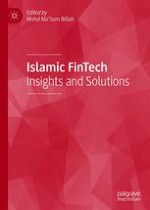2021 | OriginalPaper | Buchkapitel
13. Utilization of Digital Technology for Zakat Development
verfasst von : Irfan Syauqi Beik, Randi Swandaru, Priyesta Rizkiningsih
Erschienen in: Islamic FinTech
Verlag: Springer International Publishing
Aktivieren Sie unsere intelligente Suche, um passende Fachinhalte oder Patente zu finden.
Wählen Sie Textabschnitte aus um mit Künstlicher Intelligenz passenden Patente zu finden. powered by
Markieren Sie Textabschnitte, um KI-gestützt weitere passende Inhalte zu finden. powered by
